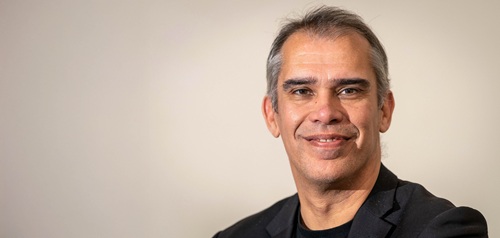I recently returned to Twitter after a long break. The atmosphere felt grimmer. The interaction angrier. Previously active colleagues were missing.
Opinion
We need to talk about e-health
I asked them why. ‘Twitter’s not real life’ was a common response. ‘It’s a cesspit’ was another. Of those who had left, most were female. Figures appear to bear this out. Twitter users are around 70 per cent male, according to Hootsuite.
In my conversations with those who had quit the platform, e-health came up time and time again.
 Samantha Peters: "We need better rules of engagement for social media."
Samantha Peters: "We need better rules of engagement for social media."
I can see why. The beauty of digital spaces which allow us to connect with ideas around the world, cannot hide the ugliness with which we sometimes use them. Storms and pile-ons. Misinterpretation and dis-interpretation. Insults, aggressions and labels. I’ve seen threats; I’ve seen bullies.
What is driving all this bile and hostility?
I can think of at least one answer. You may have heard of the Milgram experiments. Even if you don’t know the name you’ve probably heard the story. In these people were instructed to give ‘learners’ electric shocks when they got answers wrong in a simulated test. Remarkably, a high percentage of people were willing to shock another human being when told to do so, even to life threatening voltages.
However, there’s a much less well-known finding from this study which might explain why we behave the way we do on social media. Milgram also found that the closer people were, the more they could see, touch, or hear each other, the more likely they were to say no, I won’t hurt this person.
He concluded that proximity makes it harder to cause harm. And not just because we see the effect of our behaviour on people, but also because we see them judging us for it.
And therein lies the problem of social media. I can’t hear you. I don’t really see you. Your picture may not even look human. There’s no real proximity. Thus, I am removed from the effects of my own behaviour towards you. I don’t ‘see’, ‘feel’ or ‘hear’ the impact of my words. And you can’t make me ‘feel’, in the emotional sense, the consequences of my actions, especially if we are anonymised or unknown to each other.
Coming back to tweeting, I noticed how easy it is to get drawn in. Over a period of some months, my patience lessened, my frustrations increased. At times, I didn’t know the people. They didn’t know me. It was then I realised that mutual anonymity makes mutual antagonism easier. The Milgram effect is in play.
But what to do? Well to start, we need to take e-health more seriously. And we need better rules of engagement. Social media has to work harder at constructing proximity, at closing the inevitable in-built sense of distance between users which it creates. So, anonymity probably has to go. At the same time, some form of structurally-enabled tolerance needs to arrive.
Making such changes won’t be easy. Nor will they be welcomed by everyone. But there will be upsides. In a digital world where we are humanly and knowingly closer, I will be able to present a more rounded sense of my ‘self’. In turn, that will force me to act with a more rounded appreciation of your ‘self’. Which has to be good for both our wellbeing.
Follow Samantha on Twitter @SPeters1001
Being Well Together programme: beingwelltogether.org
Samantha Peters is Chair of BSC Being Well Together Committee
OPINION

Is workplace health safe in 2026?
By Kevin Bampton, BOHS on 10 February 2026
UK Government efforts to boost the economy and employment levels through approaches such as deregulation pose a serious threat to the country’s workplace safety standards and the health of our workforce.

How stress and burnout will shape the workplace in 2026
By Charlotte Maxwell-Davies, Mental Health UK on 09 February 2026
Burnout is rapidly becoming one of the nation’s most significant workplace challenges. It is emerging as a defining issue for organisations and wider society, as the UK contends with a long-term sickness crisis driven by poor mental health. Stress can be motivating in short bursts, but when left unmanaged it contributes to work absences and lost productivity, as well as presenting a clear risk to the health of workers.

A new year, a new approach to risk?
By Mike Robinson FCA, British Safety Council on 02 February 2026
The rulebook is becoming obsolete faster than we can rewrite it. While bureaucracies labour to update yesterday’s regulations, the world of work transforms daily.



